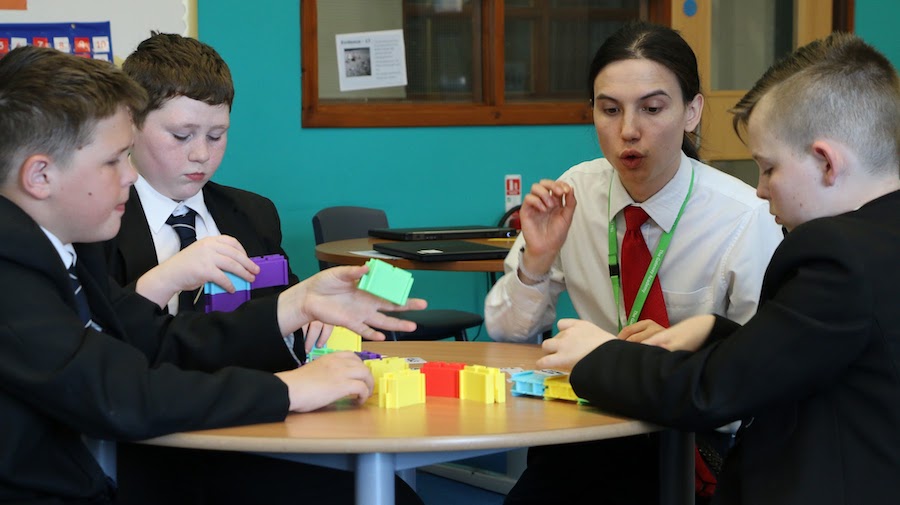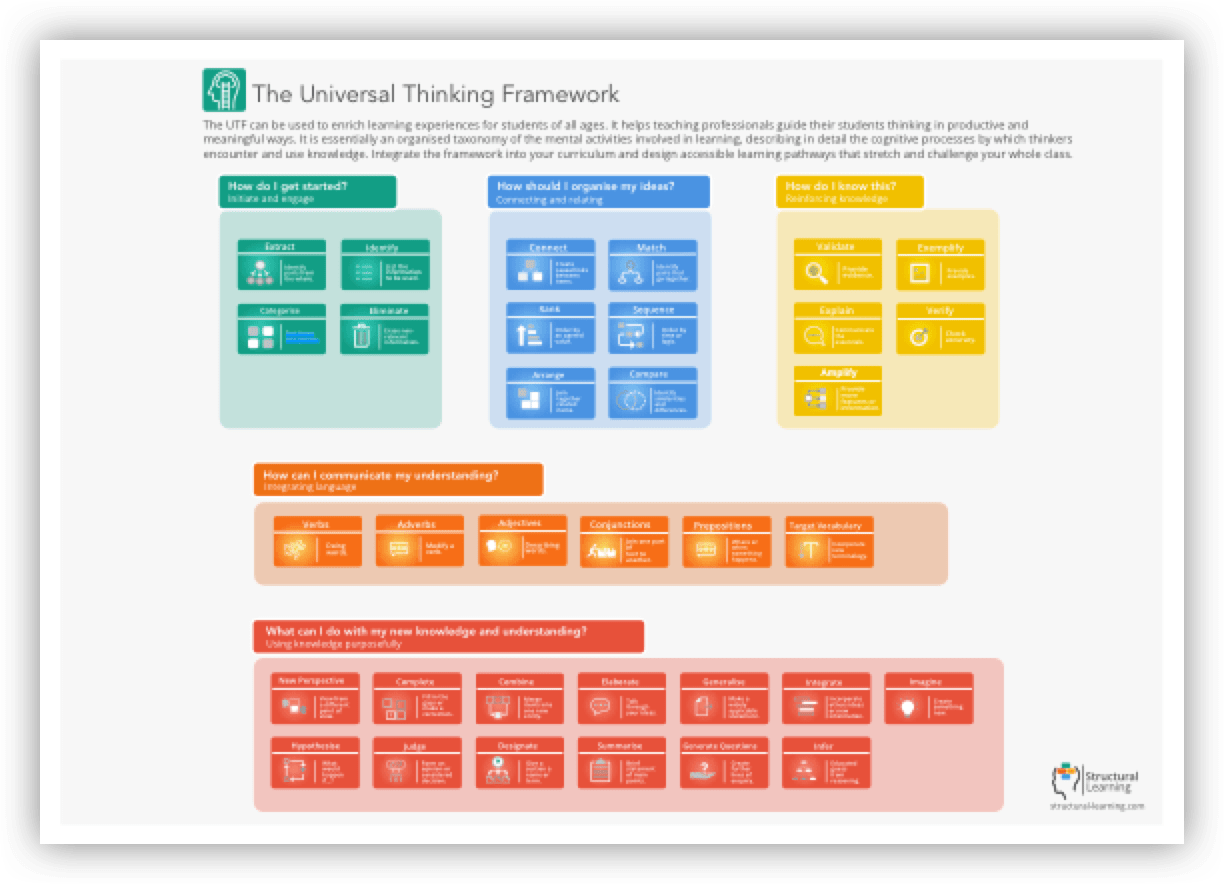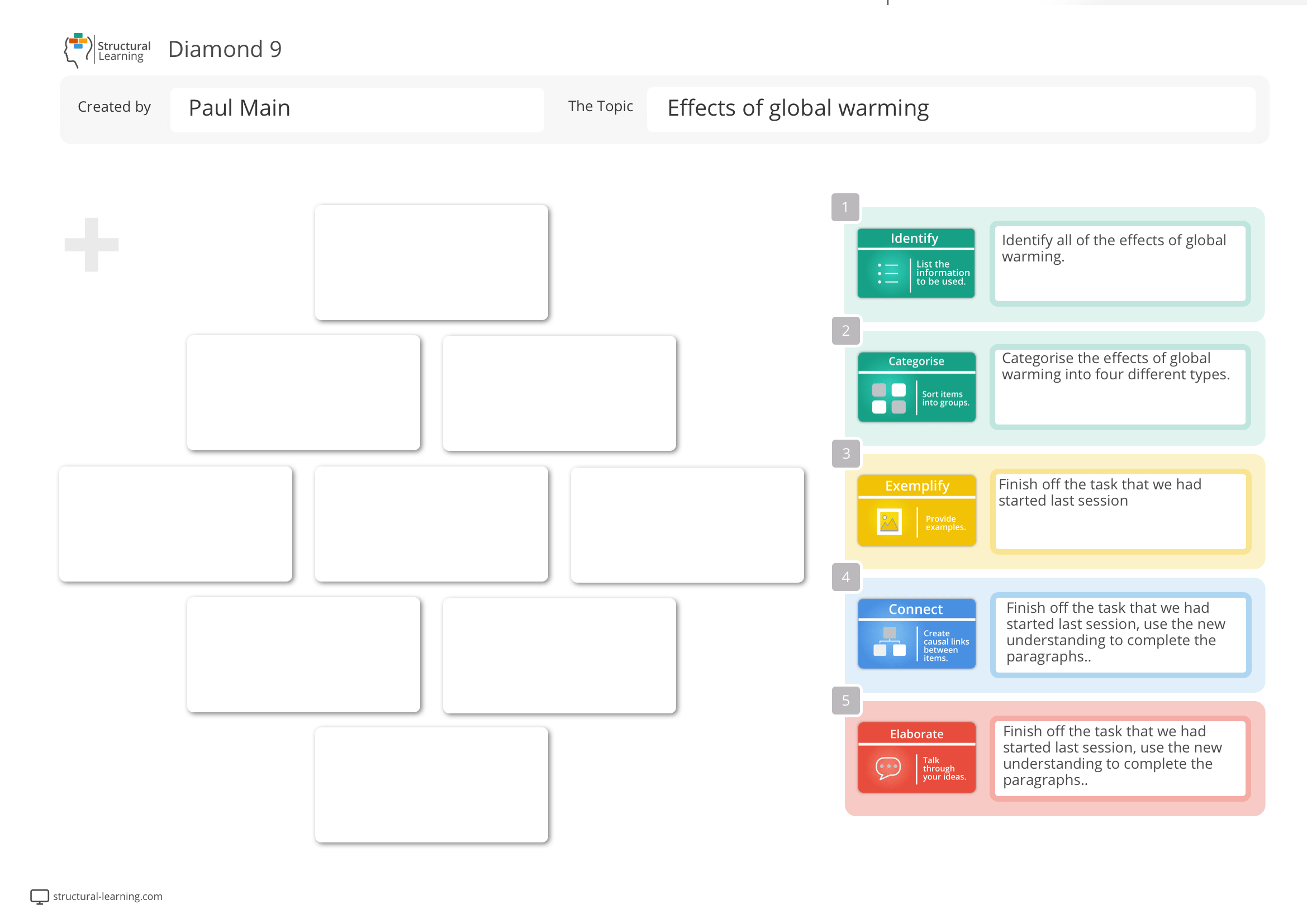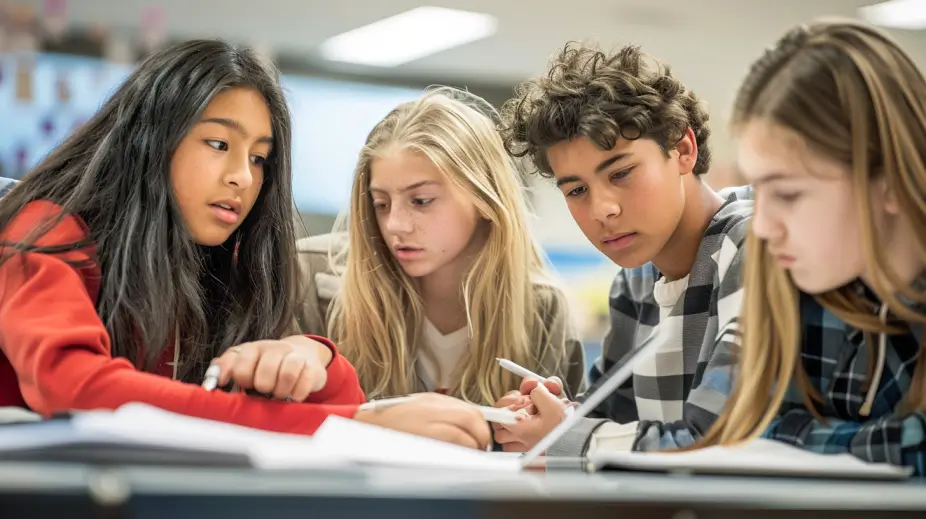Learning to learn: A teacher's guide
|
December 15, 2021
What do we mean by Learning to learn classroom strategies and how can schools use the science of learning to create cultures of independent learning?


|
December 15, 2021
What do we mean by Learning to learn classroom strategies and how can schools use the science of learning to create cultures of independent learning?
'Learning how to learn' is the talent to seek and persist in learning. It shows the ability to organise knowledge, by way of effective time and information management, both at personal and group levels. As the amount of information available to us increases, the ability to understand how our memory works has become more important than ever. Ideas such as a memory palace have been around for awhile and organisations such as the EEF are providing more insights than ever into the domains of metacognition.
We believe that any student in school has the capacity to develop and use insights into the mind to improve how they approach learning. Whether you are working with a child in a primary school or students in University, there are key principles that will enable us all to advance learning outcomes.
Learning capability is not a fixed trait, but rather a skill that can be developed and improved over time. By understanding how we learn and applying effective learning strategies, we can enhance our ability to acquire and retain new information. This includes techniques such as spaced repetition, active recall, and chunking.
Additionally, developing a growth mindset and embracing challenges can help us overcome obstacles and persevere in our learning journey. With the right mindset and tools, anyone can improve their learning capability and achieve their goals.
A diligent student might know how he she can learn best and how to direct learning. A diligent student might also guide his/her way through the wide variety of available options in school and beyond.
The process of learning is crucial to our existence. We eat food to nourish our bodies, and we seek knowledge and continued learning to feed our minds. In this article, we will attempt to demonstrate that learning is indeed learnable. Children can learn how to chunk information into semantic categories that improve memory. There are also exercises design to switch modes of thinking for students. The bottom line is, intelligence is not static, if we are going to challenge some of the misconceptions about attainment then we must first dig a little bit deeper into some fundamentals about how the mind works.
'Learning how to learn', is specifically crucial for developing independent learners, when the educators are no longer the main source of knowledge and information. According to the academic experts, Dr Terrence Sejnowski (Francis Crick Professor at The Salk Institute for Biological Studies) and Dr Barbara Oakley (of the University Of California, San Diego), the following are some of the most valuable learning techniques to build competence in learning and managing time more effectively.

Depending on the learning task and the period of time available, there are numerous strategies and techniques to improve outcomes. Within the last few years, researchers have provided us with insights about learning that we did not have 20 years ago. This knowledge has enabled educational institutions to develop invaluable learning techniques that helps a student in school to 'think for themselves'. The Internet is littered with courses that claim to improve our memory.
To become a lifelong learner, all we have to do is adopt a few simple ideas that can be transformational for our thinking. At Structural Learning, we develop mental tools that are built on insights on education. An education professional is bombarded with new information every day and it's not always easy to keep up with the latest concepts. Our passionate community of readers and contributors are continually adding to our tool box of resources and ideas.
Articles to read and concepts to try:

Like any new idea implemented in a school, it is best to drip feed new ideas and techniques into an educational ecosystem. Providing too much too soon can be problematic for teachers and students alike. The following strategies are evidence based techniques that might prove a good starting point.

The entire student experience of becoming lifelong learners should prepare individuals to perform critical duties in everyday life. Being able to learn effectively constitutes the most important part of any modern organisation in every industry.
It's important to note that developing a learning to learn culture also includes understanding different learning styles. Everyone has unique ways of processing and retaining information. Some people may learn best through visual aids, while others may prefer hands-on activities or auditory learning.
By recognizing and catering to different learning styles (although this area isn't without its critics), educators and individuals can optimize the learning experience and make it more effective.
It's also important to encourage individuals to experiment with different learning techniques and find what works best for them personally. This can lead to more efficient and enjoyable learning experiences.
In order to achieve maximum memory retention, it's important to incorporate repetition and practice into the learning process. This can be done through activities like flashcards or quizzes, which reinforce key concepts and help solidify them in the learner's mind.
Additionally, creating a positive and supportive learning environment can also contribute to better memory retention. When learners feel comfortable and engaged, they are more likely to retain information and apply it in real-world situations. By incorporating these strategies and techniques, individuals and educators can create a culture of continuous learning and growth.
Dr Barb Oakley and Dr Terrence Sejnowski are experts in the art and science of learning. Should you be interested to find out more on this topic, their insights on education and key takeaways of their learning strategies are available in mobile apps in a Chinese version, Portuguese version and Spanish version. You can also hear their thoughts on all things learning in the various podcasts they are featured in. Study skills, or learning to learn skills are a significant aid to children as they teach them 'how to learn' and be successful in school. Metacognitive skills play a necessary part in developing the critical thinking skills necessary for becoming a lifelong learner and academic success. It's not another quick fix and it does require a clear vision but we are sure you'll soon reap the benefits.

These studies collectively illustrate the benefits of incorporating deliberate practice, spaced repetition, and effective study skills into learning strategies to enhance student ownership of their learning and improve academic outcomes.
1. Choffin, B., Popineau, F., Bourda, Y., & Vie, J. (2019). DAS3H: Modeling Student Learning and Forgetting for Optimally Scheduling Distributed Practice of Skills. ArXiv.
Summary: This study introduces the DAS3H model, which optimizes spaced repetition scheduling by considering both memory decay and multiple skill tagging. It enhances student learning and retention through personalized study sessions. Key insights include how deliberate practice and spaced repetition can address poor memory and improve long-term retention of complex skills.
2. Feng, K., Zhao, X., Liu, J., Cai, Y., Ye, Z., Chen, C., & Xue, G. (2019). Spaced Learning Enhances Episodic Memory by Increasing Neural Pattern Similarity Across Repetitions. The Journal of Neuroscience, 39, 5351-5360.
Summary: This research investigates the neural mechanisms underlying the spacing effect. The study finds that spaced learning increases neural pattern similarity and enhances episodic memory, supporting the study-phase retrieval hypothesis. This highlights the importance of spaced repetition in improving study skills and memory retention during study sessions.
3. Lambers, A., & Talia, A. (2020). Spaced Repetition Learning as a Tool for Orthopedic Surgical Education: A Prospective Cohort Study on a Training Examination. Journal of Surgical Education.
Summary: This study evaluates spaced repetition learning using the Anki program for orthopedic trainees. Results show a strong correlation between spaced practice and examination performance, demonstrating that deliberate practice through spaced repetition can significantly enhance study skills and knowledge retention, even in high-stakes professional settings.
4. Greene, R. (2008). Repetition and Spacing Effects. In H. L. Roediger III (Ed.), Learning and Memory: A Comprehensive Reference (Vol. 2, pp. 65-78).
Summary: Greene's chapter reviews the effects of repetition and spacing on learning. The findings highlight that spaced repetitions lead to superior memory retention compared to massed practice. This underscores the effectiveness of spaced repetition and deliberate practice in improving long-term learning outcomes and addressing poor memory in educational contexts.
5. Lehtinen, E., Hannula-Sormunen, M., McMullen, J., & Gruber, H. (2017). Cultivating mathematical skills: from drill-and-practice to deliberate practice. ZDM, 49, 625-636.
Summary: This study explores the role of deliberate practice in developing mathematical skills. It contrasts traditional drill-and-practice with deliberate practice, emphasizing the importance of thoughtful, reflective learning activities. The research suggests that deliberate practice, coupled with spaced repetition, can significantly enhance students' study skills and mathematical understanding.
'Learning how to learn' is the talent to seek and persist in learning. It shows the ability to organise knowledge, by way of effective time and information management, both at personal and group levels. As the amount of information available to us increases, the ability to understand how our memory works has become more important than ever. Ideas such as a memory palace have been around for awhile and organisations such as the EEF are providing more insights than ever into the domains of metacognition.
We believe that any student in school has the capacity to develop and use insights into the mind to improve how they approach learning. Whether you are working with a child in a primary school or students in University, there are key principles that will enable us all to advance learning outcomes.
Learning capability is not a fixed trait, but rather a skill that can be developed and improved over time. By understanding how we learn and applying effective learning strategies, we can enhance our ability to acquire and retain new information. This includes techniques such as spaced repetition, active recall, and chunking.
Additionally, developing a growth mindset and embracing challenges can help us overcome obstacles and persevere in our learning journey. With the right mindset and tools, anyone can improve their learning capability and achieve their goals.
A diligent student might know how he she can learn best and how to direct learning. A diligent student might also guide his/her way through the wide variety of available options in school and beyond.
The process of learning is crucial to our existence. We eat food to nourish our bodies, and we seek knowledge and continued learning to feed our minds. In this article, we will attempt to demonstrate that learning is indeed learnable. Children can learn how to chunk information into semantic categories that improve memory. There are also exercises design to switch modes of thinking for students. The bottom line is, intelligence is not static, if we are going to challenge some of the misconceptions about attainment then we must first dig a little bit deeper into some fundamentals about how the mind works.
'Learning how to learn', is specifically crucial for developing independent learners, when the educators are no longer the main source of knowledge and information. According to the academic experts, Dr Terrence Sejnowski (Francis Crick Professor at The Salk Institute for Biological Studies) and Dr Barbara Oakley (of the University Of California, San Diego), the following are some of the most valuable learning techniques to build competence in learning and managing time more effectively.

Depending on the learning task and the period of time available, there are numerous strategies and techniques to improve outcomes. Within the last few years, researchers have provided us with insights about learning that we did not have 20 years ago. This knowledge has enabled educational institutions to develop invaluable learning techniques that helps a student in school to 'think for themselves'. The Internet is littered with courses that claim to improve our memory.
To become a lifelong learner, all we have to do is adopt a few simple ideas that can be transformational for our thinking. At Structural Learning, we develop mental tools that are built on insights on education. An education professional is bombarded with new information every day and it's not always easy to keep up with the latest concepts. Our passionate community of readers and contributors are continually adding to our tool box of resources and ideas.
Articles to read and concepts to try:

Like any new idea implemented in a school, it is best to drip feed new ideas and techniques into an educational ecosystem. Providing too much too soon can be problematic for teachers and students alike. The following strategies are evidence based techniques that might prove a good starting point.

The entire student experience of becoming lifelong learners should prepare individuals to perform critical duties in everyday life. Being able to learn effectively constitutes the most important part of any modern organisation in every industry.
It's important to note that developing a learning to learn culture also includes understanding different learning styles. Everyone has unique ways of processing and retaining information. Some people may learn best through visual aids, while others may prefer hands-on activities or auditory learning.
By recognizing and catering to different learning styles (although this area isn't without its critics), educators and individuals can optimize the learning experience and make it more effective.
It's also important to encourage individuals to experiment with different learning techniques and find what works best for them personally. This can lead to more efficient and enjoyable learning experiences.
In order to achieve maximum memory retention, it's important to incorporate repetition and practice into the learning process. This can be done through activities like flashcards or quizzes, which reinforce key concepts and help solidify them in the learner's mind.
Additionally, creating a positive and supportive learning environment can also contribute to better memory retention. When learners feel comfortable and engaged, they are more likely to retain information and apply it in real-world situations. By incorporating these strategies and techniques, individuals and educators can create a culture of continuous learning and growth.
Dr Barb Oakley and Dr Terrence Sejnowski are experts in the art and science of learning. Should you be interested to find out more on this topic, their insights on education and key takeaways of their learning strategies are available in mobile apps in a Chinese version, Portuguese version and Spanish version. You can also hear their thoughts on all things learning in the various podcasts they are featured in. Study skills, or learning to learn skills are a significant aid to children as they teach them 'how to learn' and be successful in school. Metacognitive skills play a necessary part in developing the critical thinking skills necessary for becoming a lifelong learner and academic success. It's not another quick fix and it does require a clear vision but we are sure you'll soon reap the benefits.

These studies collectively illustrate the benefits of incorporating deliberate practice, spaced repetition, and effective study skills into learning strategies to enhance student ownership of their learning and improve academic outcomes.
1. Choffin, B., Popineau, F., Bourda, Y., & Vie, J. (2019). DAS3H: Modeling Student Learning and Forgetting for Optimally Scheduling Distributed Practice of Skills. ArXiv.
Summary: This study introduces the DAS3H model, which optimizes spaced repetition scheduling by considering both memory decay and multiple skill tagging. It enhances student learning and retention through personalized study sessions. Key insights include how deliberate practice and spaced repetition can address poor memory and improve long-term retention of complex skills.
2. Feng, K., Zhao, X., Liu, J., Cai, Y., Ye, Z., Chen, C., & Xue, G. (2019). Spaced Learning Enhances Episodic Memory by Increasing Neural Pattern Similarity Across Repetitions. The Journal of Neuroscience, 39, 5351-5360.
Summary: This research investigates the neural mechanisms underlying the spacing effect. The study finds that spaced learning increases neural pattern similarity and enhances episodic memory, supporting the study-phase retrieval hypothesis. This highlights the importance of spaced repetition in improving study skills and memory retention during study sessions.
3. Lambers, A., & Talia, A. (2020). Spaced Repetition Learning as a Tool for Orthopedic Surgical Education: A Prospective Cohort Study on a Training Examination. Journal of Surgical Education.
Summary: This study evaluates spaced repetition learning using the Anki program for orthopedic trainees. Results show a strong correlation between spaced practice and examination performance, demonstrating that deliberate practice through spaced repetition can significantly enhance study skills and knowledge retention, even in high-stakes professional settings.
4. Greene, R. (2008). Repetition and Spacing Effects. In H. L. Roediger III (Ed.), Learning and Memory: A Comprehensive Reference (Vol. 2, pp. 65-78).
Summary: Greene's chapter reviews the effects of repetition and spacing on learning. The findings highlight that spaced repetitions lead to superior memory retention compared to massed practice. This underscores the effectiveness of spaced repetition and deliberate practice in improving long-term learning outcomes and addressing poor memory in educational contexts.
5. Lehtinen, E., Hannula-Sormunen, M., McMullen, J., & Gruber, H. (2017). Cultivating mathematical skills: from drill-and-practice to deliberate practice. ZDM, 49, 625-636.
Summary: This study explores the role of deliberate practice in developing mathematical skills. It contrasts traditional drill-and-practice with deliberate practice, emphasizing the importance of thoughtful, reflective learning activities. The research suggests that deliberate practice, coupled with spaced repetition, can significantly enhance students' study skills and mathematical understanding.